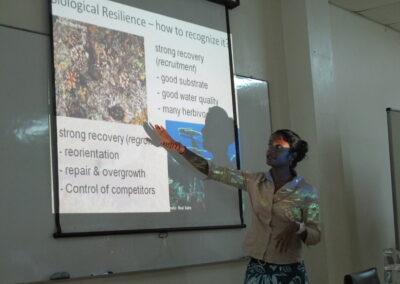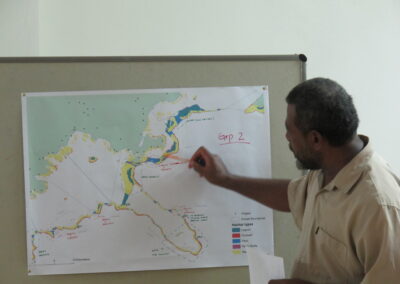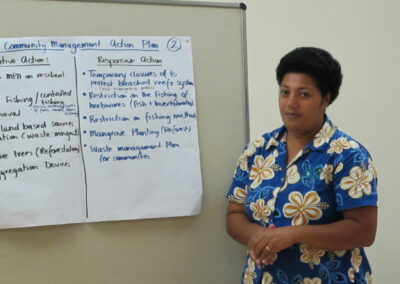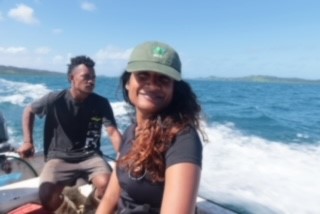Yashika Nand
A Reef Resilience Network Manager’s Story
Fiji’s Locally Managed Marine Area Network
Fiji encompasses one of the most extensive coral reef systems in the southwest Pacific, home to a vast array of reef structures that account for almost 4 percent of the world’s total reef area. Famous oceanographic explorer Jean-Michel Cousteau coined Fiji the “soft coral capital of the world” due to the region’s abundance of coral diversity and marine life. To protect Fiji’s coastal treasures, local communities and nongovernmental organizations have worked together to establish a network of locally managed marine protected areas (MPAs) in Fiji.
Meet the Manager
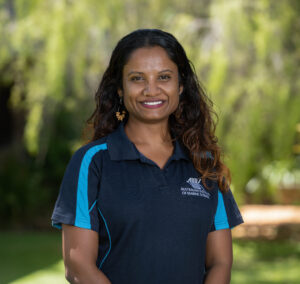
Yashika Nand. Photo © Yashika Nand
After the designation of Fiji’s Locally Managed Marine Area (FLMMA) network, Yashika Nand, then a Marine Scientist for the Wildlife Conservation Society Fiji, began working with FLMMA partners and community representatives to integrate resilience concepts into management plans to minimize the impacts of climate change on reef ecosystems and help them to thrive in the future. While developing this program for the FLMMA network, the team recognized the need for additional information on resilience principles and adaptive management before launching the Fiji Reef Resilience Program.
Reef Resilience Network Support
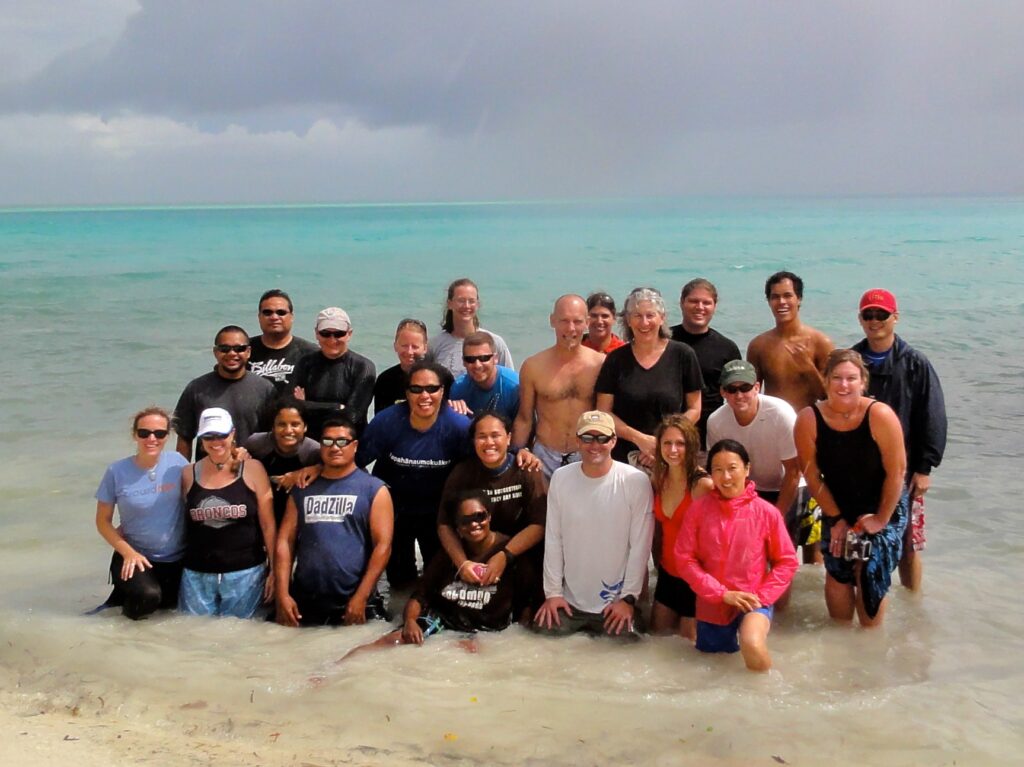
Participants from the Reef Resilience Training of Trainers Workshop in Palau. Photo © Reef Resilience Network
Yashika participated in a Reef Resilience Network (the Network) Training of Trainers (TOT) course to expand her understanding of reef resilience principles and management techniques to aid in the development of the Fiji Reef Resilience Program. The TOT course consisted of a four-month online course mentored by global and regional experts, followed by a week-long, in-person workshop in Palau. During the TOT course, Yashika learned about resilient MPA network design, coral disease, and how to develop a bleaching response plan. She also received guidance on the design of the Fiji Reef Resilience Program and acquired valuable information about conducting resilience workshops for FLMMA community representatives. Yashika left the TOT course equipped with new information and resources and a plan to host a workshop for FLMMA partners and community representatives.
“After the training, I was able to apply many of the skills I learned from the Reef Resilience Network and hosted a two-day workshop to share resilience concepts with community representatives who help manage the FLMMA. I used information directly from the Network course for my presentations.”
—Yashika
Success and Next Steps
After the TOT course, Yashika and her team incorporated new information and resources into the Fiji Reef Resilience Program and hosted a two-day workshop for FLMMA partners and community representatives to introduce them to resilience principles and coral disease, train managers in adaptive management, and develop bleaching response plans. Four community representatives who attended the workshop developed and implemented bleaching response plans for their districts. The workshop also sparked a movement among FLMMA managers to incorporate resilience into management and apply more adaptive management strategies. After the workshop, participants shared information with managers from other districts who were unable to attend, hosting additional trainings based on the information they learned. FLMMA and its partners currently work with communities across Fiji to develop management plans that incorporate resilience principles aimed to increase ecosystem and community resilience to climate change and associated disturbances, such as more frequent flooding and severe cyclones.
Another important outcome of the workshop happened during Yashika’s presentation, when managers recognized coral disease and realized it was present on their reefs. They became concerned and wanted to learn more about the causes of coral disease in Fiji and how to address them.
“Before the Reef Resilience Network course, we didn’t know how important coral disease was. I understood the concept much better after the course and was confident to talk about it with a larger group. After I presented on coral disease during our workshops in Fiji, there was a new awareness and a lot of concern about diseases on our reefs in Fiji.”
—Yashika
Yashika presenting on biological resilience during a Fiji Reef Resilience Workshop. Photo © Yashika Nand
Due to the lack of information on coral diseases in Fiji, Yashika was inspired to go back to school to learn about coral disease to help guide local management strategies. In 2020, Yashika graduated with a master’s degree from the University of the South Pacific focusing on coral disease research in Fiji. Since graduating, Yashika has been helping other Pacific Island partners identify coral disease on their reefs and guiding them on reef management. Yashika has also been working with resorts in Fiji to develop coral disease monitoring frameworks and has incorporated reef resilience concepts into every community-based management workshop she has supported since the TOT training. In her new role at the Australian Institute of Marine Science, Yashika hopes to incorporate coral disease surveys into an open-access platform designed to collate and analyze reef monitoring data—so that managers can perform coral surveys and get almost immediate results. Access to this data will help managers develop and update more effective coral reef management strategies.
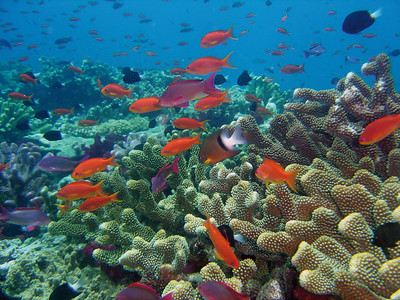
Coral reef in Fiji. Photo © Dave Burdick

